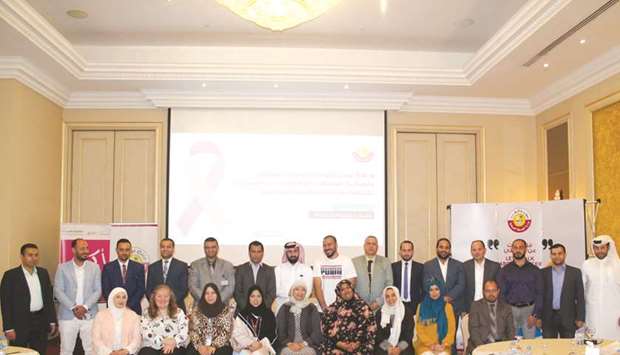The Ministry of Public Health is working with many of its partners to correct cancer-related misconceptions and raise awareness about the importance of early detection and prevention.
The ministry organised a workshop for about 100 social workers and psychologists in public primary and secondary schools on awareness and correcting misconceptions about cancer in collaboration with cancer awareness partners at Hamad Medical Corporation, Primary Health Care Corporation and Qatar Cancer Society.
During the workshop, several important topics related to cancer were discussed, including the role of partners in cancer awareness, identification, risk factors, signs, symptoms and prevention through a healthy lifestyle that includes protection from sunlight, nutrition, physical activity, abstaining from tobacco consumption, and correcting misconceptions about cancer.
They also discussed the importance of early diagnosis, screening and disease-related services in Qatar, as well as the experience of the Qatar Cancer Society in cancer prevention programs in schools and how schools can help prevent cancer.
The workshop is part of a worldwide initiative to combat the global cancer epidemic, focusing on correcting misconceptions about cancer, as well as the negative impact on cancer control mechanisms in society where misconceptions can affect how health interventions are accepted, prevent early screening efforts and hinder preventive measures.
Head of the Health Promotion and Non-Communicable Diseases at the Ministry Dr Kholood al-Mutawa said that the National Cancer Strategy states that besides the need to uncover the beliefs and misconceptions surrounding cancer, there is an urgent need to raise awareness and disseminate more information about the disease.
She pointed out that awareness of the disease by making it part of the school curriculum for children is one of the effective ways to reach a wide audience, adding that it is recommended to include the definition of cancer, its prevention, early detection and how to act when suspected of infection in the programme of teaching students, so that all school students have at least one lesson covering this information.
The cancer awareness and prevention initiative in schools is concerned with providing a proactive approach to information so that children and young people are educated before they reach the age at which the risk of developing the disease increases with age.

Participants in the workshop.
